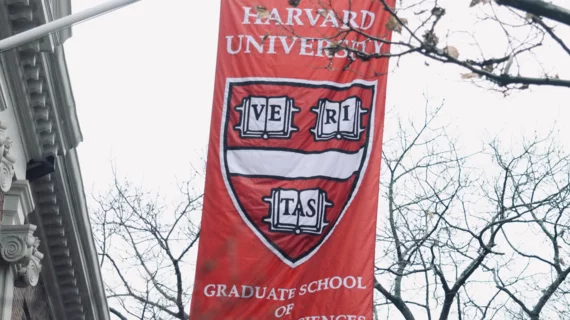Physician picked to guide Harvard through present storm
Embattled academic executive Claudine Gay resigned from her post as president of Harvard University yesterday, and the esteemed Ivy League institution almost immediately appointed an interim leader.
That leader is physician and economist Alan Garber, MD, PhD, who has served as Harvard’s provost since 2011.
Garber’s other roles at the school include chief academic officer, professor of healthcare policy at Harvard Medical School and professor of health policy and management in the Harvard T.H. Chan School of Public Health.
His medical training included a residency in internal medicine at Brigham and Women’s Hospital in Boston during the 1980s, according to his CV. He also worked as a staff physician for the VA in Palo Alto, Calif.
Garber steps into the interim position at a time when the Harvard presidency is under intense public scrutiny.
The attention first became focused in the wake of the Oct. 7 attacks perpetrated by the Islamicist terrorist group Hamas against Israeli civilians.
When Gay expressed support for multiple Harvard student groups stating they held Israel solely responsible for the attacks, some observers called for Harvard to fire her.
The calls grew louder after Gay testified before Congress that, if Harvard students were to call for population-level killings of Jewish people, she would consider the “context” of their words before ruling on the defensibility of their speech.
The university pledged to stand by Gay even when philanthropists began pulling back millions of dollars in donations.
However, when a cascading slew of accusations arose showing Gay had committed plagiarism in her academic publications—some of the charges carefully documented—Gay announced she would step down, effective immediately.
“[I]t has become clear that it is in the best interests of Harvard for me to resign so that our community can navigate this moment of extraordinary challenge with a focus on the institution rather than any individual,” Gay wrote in a message to the Harvard community.
As numerous outlets have noted, Gay’s tenure as president lasted six months and one day.
The university is expected to retain her as a faculty member or in another lower-profile capacity and to initially pay her between $800,000 and $900,000 per year for her next role.
For his part, Garber said, in prepared remarks: “With the support, advice and help of the Harvard community, my focus during this interim period will be on advancing our mission and helping to heal and strengthen a university that I cherish. … I am confident we will overcome challenges we face and build a brighter future for Harvard.”
The Harvard Gazette has more, and the mainstream press has blanket coverage.

